Often times we hear about the dangers of ingesting pesticides and chemicals. So, the idea of smoking, juicing, baking or vaping marijuana treated with poisonous substances should also set off red flags. In fact, many chemicals used on cannabis plants are intended only for lawns and other plants that are not meant to be ingested.
There were medical cannabis samples from California that had pesticide residues at levels 1600 times the legal digestible amount. What is worse is that because marijuana is usually inhaled instead of eaten, the poison it contains has a more direct route into the lungs and bloodstream. The situation is worrisome for patients using medical marijuana who are sick with liver diseases, immunocompromised, or undergoing chemotherapy, just to name a few. These patients are more vulnerable to the risks that chemicals and pesticides bring. They shouldn’t be subjected to harmful contaminants from dubious greedy growers when they are looking to marijuana as a source of healing.
In theory, it sounds good and well to avoid using dangerous pesticides, but what do you do then when your babies are getting attacked by mites and other bugs? And as we all love an enormous tasty harvest instead of a more natural random smaller one. One possible answer may lie in companion planting.
Companion planting is a natural and economical way to increase the quality of your cannabis crop and minimize the damage from pests. It’s generally just planting, beneficial plants close to each other, but not so close that they complete root space and other resources. Some plants give off chemicals and strong odors that will either deter pests or draw in beneficial predators. Other companion plants can add vital nutrients to the soil that will feed your marijuana plants with the nourishment they need. Note to those of you with less than cannabis-friendly neighbors; Companion planting can also simply be planting large, bushy plants around your precious crop to camouflage it from those pesky people and hide it from any nosy passerby.
As we are on the subject anyway, did you know that cannabis itself is a natural pest repellent to hundreds of pests? So, in, fact it can also be used as a companion crop for other plants in your own more regular garden to deter insects, nematodes, weedy plants, and fungi.
Care to cook up a killer pasta while growing? Well, start with basil then, because this delicious herb is a wonderful companion plant for cannabis. Its strong scent repels pests like beetles, flies, aphids, and thrips. It has also been suggested that basil increases oil production and improves the flavor of plants it’s planted nearby. Another herb that is beneficial to marijuana is dill; it has proven beneficial in repelling spider mites, and you and I know we do not want even a single one on our green friends. Cilantro also combats spider mites along with potato beetles and aphids. More herbs like oregano and marjoram are not only an asset to your crop but also for that sweet little pasta dish. They can actually, be planted close to your cannabis plant as they do not compete for root space. They will attract beneficial insects and they have been known to increase the yield of plants close to them. As you can see, while you work on happily growing your own, you may very well practice for the next season of Masterchef!
Not only your nose and taste buds are being catered to, but there are also some for your eyes as well. The beautiful chrysanthemum flower contains pyrethrin which is a natural insecticide that can kill varieties of harmful insects along with damaging nematodes. Marigold flowers are a great asset as they have a very strong-smelling chemical that they release into the ground. Plants that are nearby will pick up the chemical that insects, like whiteflies, can taste. Other flowers like the foxglove and mullein attract Dicyphus Hesperus insects that eat spider mites, aphids, and whiteflies.
PS: even when these companion plants don’t necessarily repel all the insects, as a bonus they just might trick the pests into snacking on the companion plant instead of your cannabis crop,
Companion plants could put extra nutrients into your soil to benefit your marijuana plant. Alfalfa can be grown around your plants. As it grows taller cut it down a bit. The cuttings from the alfalfa will quickly begin to break down and provide your cannabis plant with nitrogen.
Borage, a.k.a. Starflower, is a plant that is medicinally used for humans and provides additional nutrients to your pot plant. It brings up trace nutrients from deep in the ground via their deep roots. As this plant grows, cut it down and it will become a great mulch with plenty of nutrients for your cannabis plant.
The resin content of your buds can also be increased by using one of the following companion plants. Chamomile will not only give you a tasty tea to enjoy with your joint, but when it’s planted next to your marijuana plant it will increase its oil production. On top of that benefit, it also accrues calcium, sulfur, and potassium. When the chamomile begins to decompose these accumulated minerals will become available to your cannabis plant.
If you’re looking for a way to naturally camouflage your plants then Opt for tall-growing plants like bamboo or willow trees. Southernwood is also a good choice as it grows up to 5 feet tall and a couple of feet across. It has a lemony scent that can help mask the smell of marijuana.
So when you wish to avoid chemicals, Not because they are harmful when you know what you are doing and where you buy them from. But just because you are looking for a more natural way to keep pests at bay, consider choosing a buddy plant for your cannabis crop. It will appreciate having a companion on its side fighting the battles of bugs and pests or giving it the nutrient encouragement it needs.



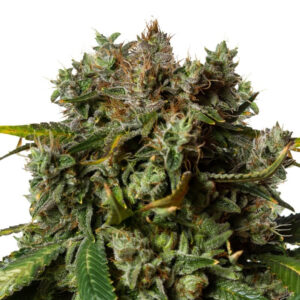

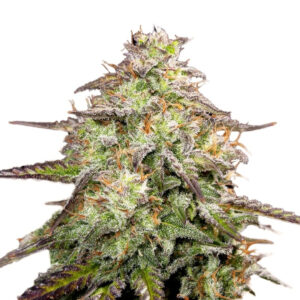
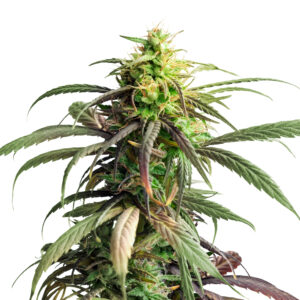






Related Posts
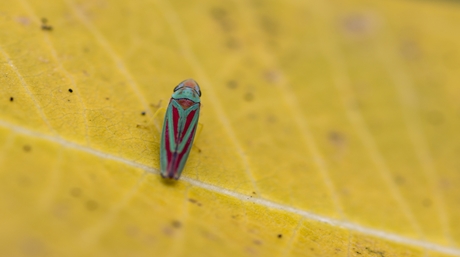
Garden pests really are a pain, and if your garden is a cannabis one, they are arguably even more so. One of the most common pests in cannabis grow are leafhoppers, tiny insects that can really harm your plants. Here is a handy little guide on how to spot them, and how to fix your issue if you have one:
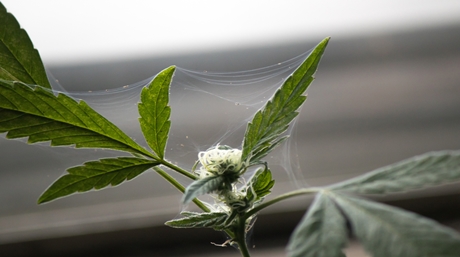
It is something every gardener has dealt with at some time. Whether you grow cannabis plants or you grow blackberries, some pest is just as interested in your plant as you are. One day you may walk out to find all of the leaves on your plant chewed up or you may find fine webbing surrounding all of your plants. What do you do?
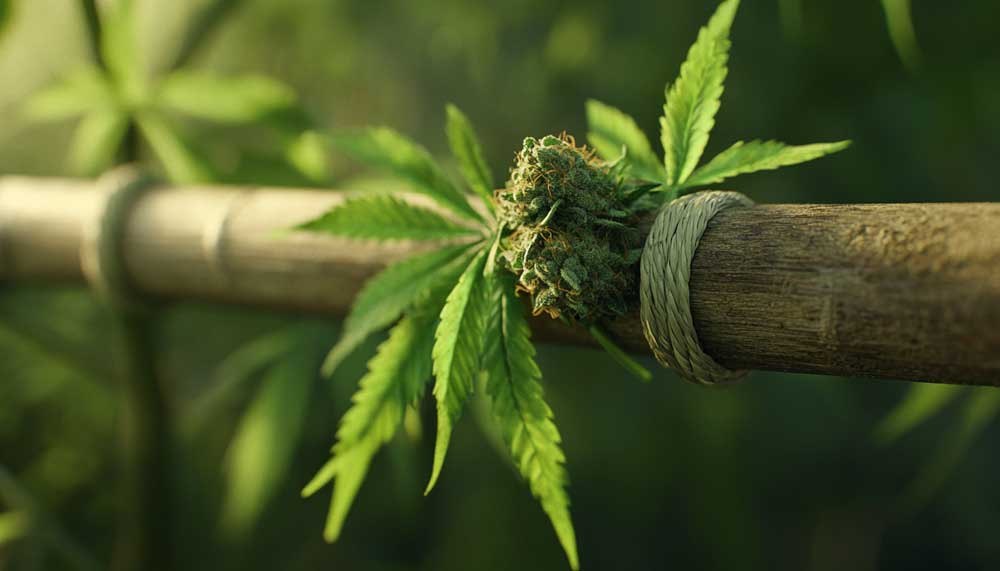
This is a common name in the cannabis world. If you listen to hip-hop or watch movies, you may have come across this term severally.
This article will help you understand Thai Stick weed in detail and explain everything you need to know about it. So buckle up and let’s get started!